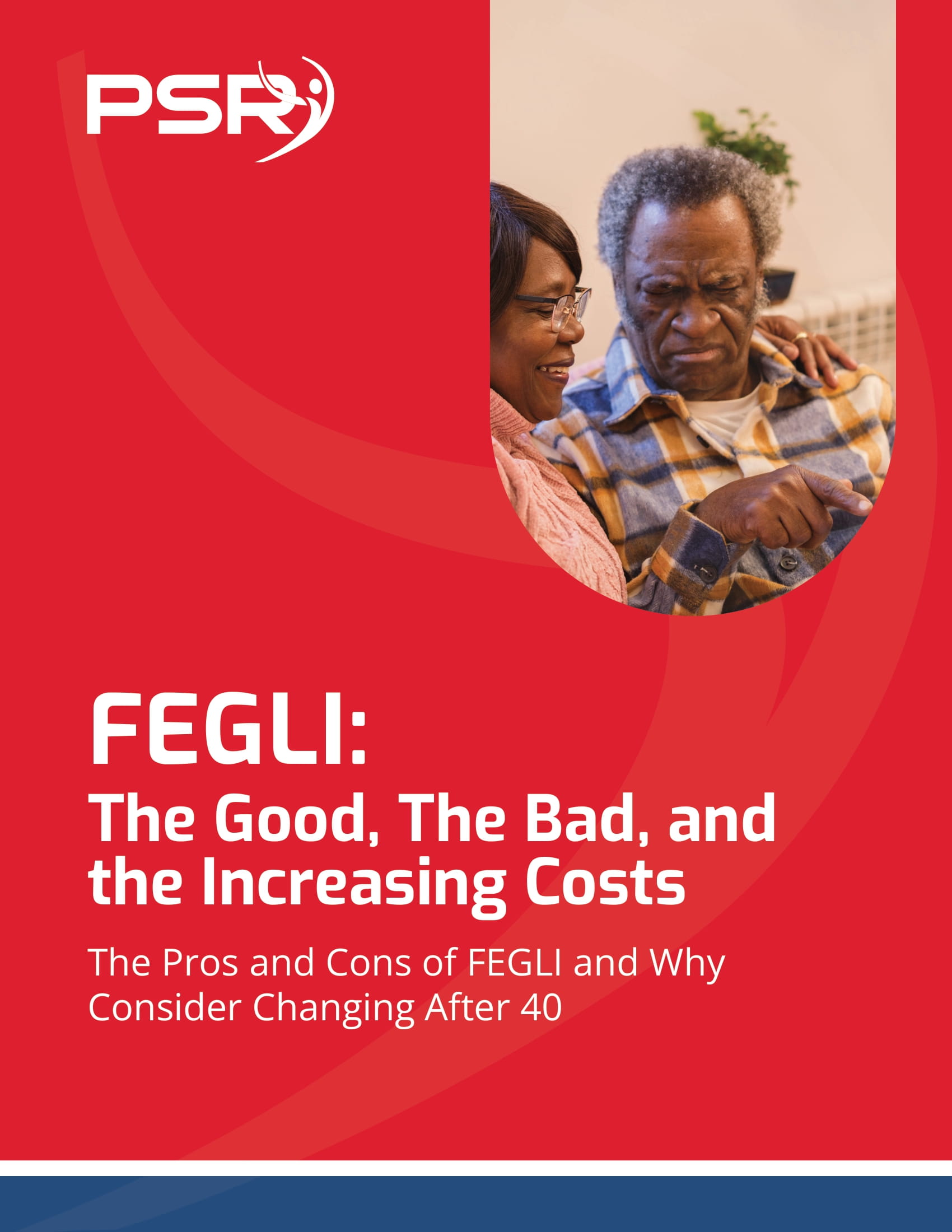Key Takeaways:
- Early retirement as a federal worker can provide freedom, but it requires careful planning around pension reductions, healthcare costs, and other long-term financial impacts.
- Evaluating your eligibility, potential penalties, and the future growth of your Thrift Savings Plan (TSP) can help you decide if early retirement is the right path.
Considering Early Retirement as a Federal Worker? Here’s What You Should Be Thinking About Before Taking the Plunge
- Also Read: Divorce and Your Federal Pension—What Happens When You Split Assets and How It Could Affect Your TSP
- Also Read: What Happens to Your Federal Benefits After Divorce? Here’s the Lowdown
- Also Read: The Best FEHB Plans for 2025: Which One Fits Your Lifestyle and Budget the Best?
Eligibility Requirements: Do You Qualify for Early Retirement?
One of the first things federal workers need to assess is whether they qualify for early retirement under their specific retirement system. Federal employees are generally covered under either the Civil Service Retirement System (CSRS) or the Federal Employees Retirement System (FERS). The eligibility criteria for early retirement can differ between these two systems.
Under FERS, for example, you can opt for early retirement under the Minimum Retirement Age (MRA) + 10 rule, which allows employees to retire as early as 57 (depending on birth year) if they have at least 10 years of service. However, this comes with a significant reduction in pension benefits—a 5% reduction for each year under the age of 62.
On the other hand, CSRS employees face different early retirement eligibility rules. Generally, CSRS employees can retire early with 30 years of service at age 55, or 20 years of service at age 60. Understanding the specific criteria under your retirement system is crucial before making any decisions.
Pension Reductions: Understanding the Financial Trade-Off
While early retirement offers the promise of more free time, it comes with financial trade-offs that must be carefully calculated. One of the most significant impacts of early retirement is the potential reduction in your pension. For federal employees under FERS, choosing to retire before the age of 62 can result in pension reductions that may lower your lifetime benefits.
The FERS pension formula is based on your “high-3” average salary (your highest consecutive three years of earnings) and your years of service. Retiring early means that you may miss out on the salary growth and additional service time that would otherwise boost your pension. In the case of MRA + 10 retirees, the 5% per year reduction for retiring before 62 can add up quickly, potentially slashing your pension by 25% or more.
For CSRS employees, while there isn’t the same penalty as FERS, retiring early still means missing out on additional years of salary growth and service credit, which can reduce your overall pension benefit.
Healthcare Considerations: Don’t Overlook Medical Costs
Healthcare is another critical factor federal employees need to consider when planning for early retirement. If you retire before reaching Medicare eligibility (typically at age 65), you’ll need to think about how to maintain your health insurance coverage. Federal employees have access to the Federal Employees Health Benefits (FEHB) program, which allows retirees to continue their health insurance into retirement.
However, the premiums for FEHB coverage can increase once you’re no longer an active employee, and retirees are responsible for paying the full premium without the government’s contribution that applies to active employees. Additionally, the costs can become even more significant if you retire before becoming eligible for Medicare, as you’ll be entirely reliant on FEHB until you reach age 65.
Planning for these healthcare costs and understanding how they fit into your retirement budget is essential. It’s also important to account for long-term care needs, which are often overlooked but can become a major expense in retirement.
Thrift Savings Plan (TSP): Maximizing Your Retirement Savings
For federal employees, the Thrift Savings Plan (TSP) plays a crucial role in retirement income. The TSP operates similarly to a 401(k), allowing you to save and invest for retirement. However, deciding to retire early can impact your TSP balance and how much income you’ll have available in retirement.
If you’re planning to retire before age 59 ½, you’ll need to understand the rules around TSP withdrawals. Early withdrawals from TSP accounts may be subject to a 10% early withdrawal penalty, although there are exceptions, such as retiring after age 55. Additionally, the longer you leave your money in the TSP, the more time it has to grow through compounding interest, which could make a significant difference in your overall retirement income.
Another consideration is how you will manage your TSP once you retire. Will you roll it over into an IRA? Will you start taking withdrawals immediately? These decisions can have long-term implications on your retirement income, so it’s important to evaluate your TSP strategy carefully.
Social Security Timing: Should You Claim Early?
Federal employees who are under the FERS system are also eligible for Social Security benefits. One common question is whether to start claiming Social Security as early as possible—at age 62—or to delay benefits for a higher payout. Claiming Social Security benefits early will reduce your monthly payment, while delaying benefits until age 70 can significantly increase the amount you receive.
However, if you’re planning to retire early, you may need the extra income from Social Security sooner rather than later. This decision will depend on your overall financial situation, your health, and your other sources of retirement income. Weighing the pros and cons of claiming Social Security early versus delaying it for a higher benefit is an important part of planning for early retirement.
The Impact of Inflation: Will Your Pension Keep Up?
Inflation is a critical factor that federal employees must account for when considering early retirement. While both FERS and CSRS pensions provide some protection against inflation through Cost-of-Living Adjustments (COLAs), these increases may not fully keep up with the rising cost of living, especially during periods of high inflation.
FERS retirees are particularly affected by this, as their COLAs are capped and don’t fully match inflation. In contrast, CSRS retirees receive COLAs that are equal to the inflation rate, which offers better protection against the rising cost of living. However, even with COLAs, inflation can erode the purchasing power of your fixed pension income over time.
When planning for early retirement, consider how inflation may impact your long-term financial situation. Ensuring you have additional sources of income, such as your TSP or other investments, can help safeguard against inflation’s effects.
Survivor Benefits: Planning for Your Loved Ones
When you retire early, it’s important to think about how your decision will impact your spouse or other dependents. Both FERS and CSRS offer survivor benefit options that allow your spouse to continue receiving a portion of your pension after your death. However, electing these benefits will reduce your monthly pension payments, so it’s essential to weigh the costs and benefits carefully.
For FERS employees, survivor benefits can range from 25% to 50% of your pension, depending on the option you choose. CSRS employees have similar options but may also be eligible for additional survivor benefits. It’s crucial to discuss these options with your family and financial planner to ensure you’re making the best choice for your loved ones.
Work-Life Balance: What Will You Do With Your Time?
While the financial aspects of early retirement are critical, it’s also important to think about what your day-to-day life will look like. Many federal employees have spent decades working, and suddenly having all that free time can be an adjustment. Before deciding to retire early, consider how you’ll fill your days and maintain a sense of purpose.
Some retirees choose to work part-time or take on consulting roles, while others may pursue hobbies or volunteer work. Planning how you’ll spend your time can help ensure a smooth transition into retirement and prevent feelings of restlessness or boredom.
Thinking Ahead for a Secure Future
Retiring early as a federal worker comes with its share of challenges and rewards. The decision requires careful planning, from ensuring your pension and TSP will support your lifestyle to navigating healthcare costs and Social Security timing. Thinking ahead and considering all angles can help you retire with confidence, knowing that you’ve prepared for both the financial and lifestyle aspects of early retirement.
Preparing for Early Retirement Success
Early retirement can be an exciting new chapter in life, but it’s not without its complexities. Federal workers must evaluate their financial readiness, healthcare needs, and retirement goals to make the best decision. By understanding the potential pension reductions, healthcare costs, and other critical factors, you can determine whether early retirement is the right move for you. With proper planning, you can take the plunge into retirement and enjoy the freedom you’ve worked hard to achieve.












